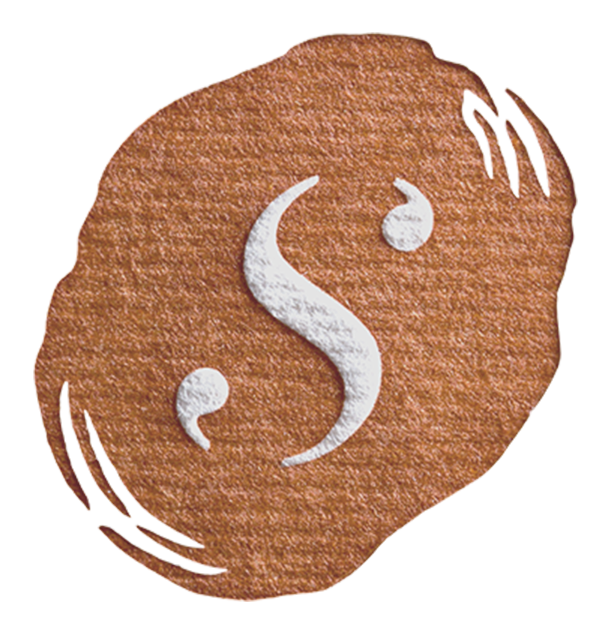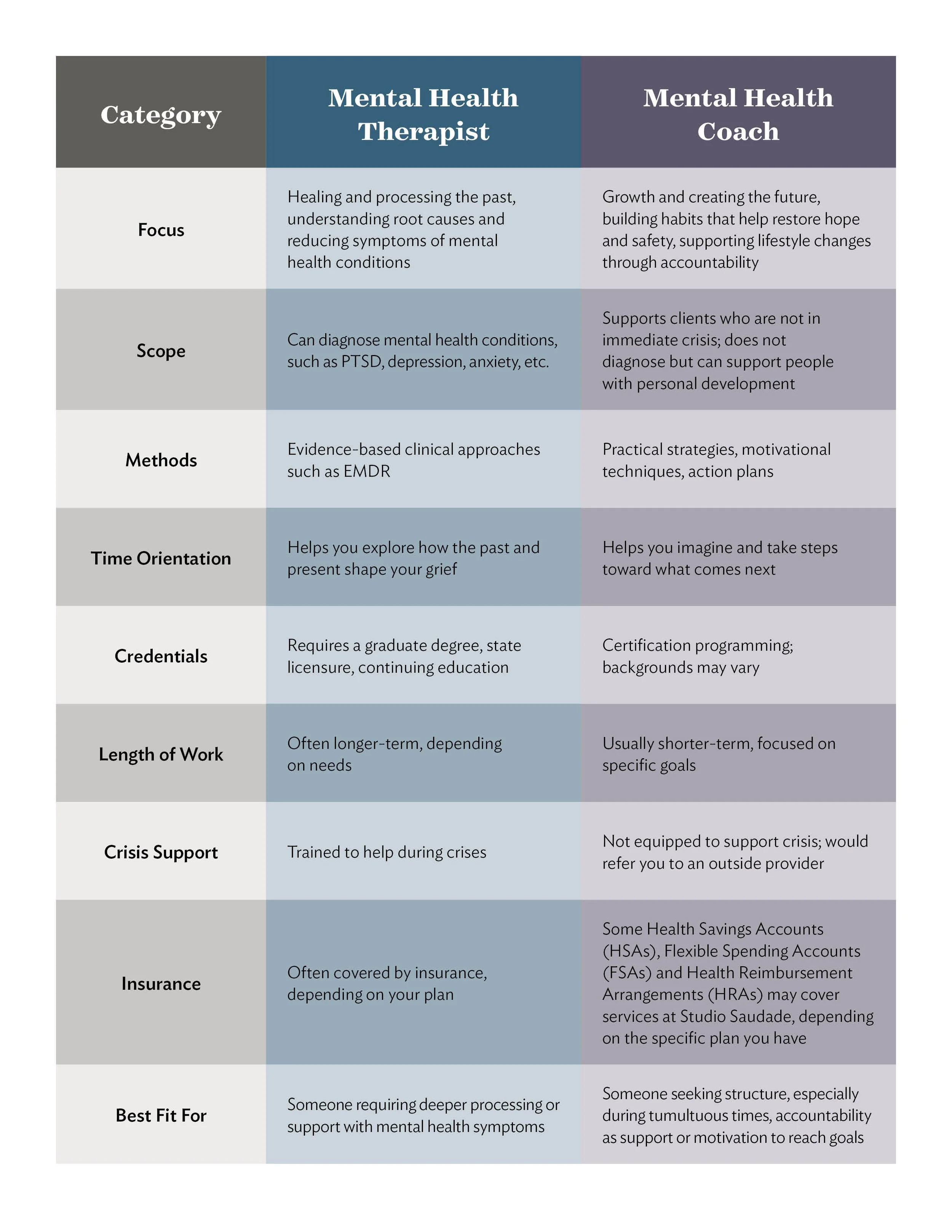Therapy or Coaching: Which One Is Right for Me?
Starting Point
Here are a few questions to ask yourself:
Do I want to find a safe place to process my loss and emotions?
Do I want tools and structures to start shaping what comes next and help me find routines to create a sense of safety?
What story am I ready to release? And what story am I ready to begin now?
Do I feel like I may benefit from both?
What other information might be needed to help guide me towards a decision?
Your answer may change over time. What matters most is that you give yourself permission to seek support in whatever way feels right to you.
A Tool to Help You Decide
Download this chart here
Finding the Right Fit
Whether looking for a therapist or coach (or both), consider these qualities to find a good fit:
Experience and Specialization: Look for someone who specializes in grief, loss, or the specific challenges you are facing. Their expertise can provide valuable insight and support. Verify their qualifications and credentials to ensure they have the necessary education in their field. Both Certified NBC-HWC coaches and therapists must adhere to professional codes.
Empathy and Compassion: Choose someone who you feel genuinely cares about your experiences and feelings. Sometimes, meeting someone with a similar story can be beneficial.
Active Listening Skills: A good therapist or coach should be an attentive listener, allowing you to express yourself freely without judgment.
Compatibility and Comfort: It is essential to feel comfortable with your therapist and/or coach. Notice how you feel during your initial consultation and trust your instincts about feelings related to opening up to them.
Approachability: Seek out a friendly and welcoming person, making it easier for you to engage in difficult conversations.
Flexibility: A good fit should be open to adapting their methods to suit your needs and preferences.
Clear Communication: They should explain their approaches clearly and ensure that you understand the process. Cost can be a significant factor in determining what form of support feels most sustainable for you. Transparency in their methods can be reassuring, especially for someone who is understandably in a very overwhelming time in their life. Information about costs and the type of services should be listed clearly, as outlined in this example here.
Supportive Environment: Ensure they create a safe and non-judgmental space for you to explore your feelings and thoughts.
Encouragement for Growth: A good therapist or coach should encourage your personal growth and empower you to take steps forward. Learn more about how a National Board Certified Health and Wellness coach does exactly that here.
By considering these qualities, you can find a therapist or coach who aligns with your needs and can support you in your healing journey. Within Studio Saudade, Certified Trauma Care Practitioners bring training specific to grief, trauma, and crisis navigation. This means clients not only receive compassionate space for their emotions but also practical guidance in creating supportive routines and connecting with other professionals as needed. Coaching here is not limited to encouragement—it is structured, embodied, and grounded in trauma-informed care.
Written by Hannah Pomfret, Licensed Mental Health Counselor Associate (LMHCA)



